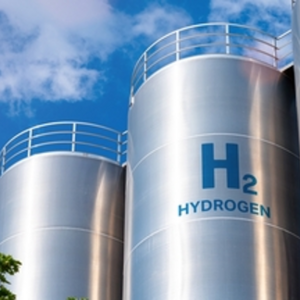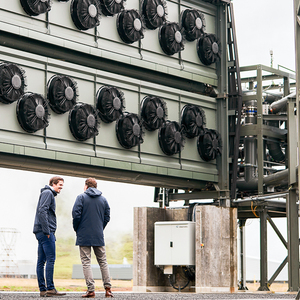
Hydrogen is emerging as an important tool for decarbonizing hard-to-abate sectors like long-haul aviation, shipping, and seasonal energy storage. What about residential heating? Direct electrification using heat pumps is widely considered the leading approach. But several utilities have begun introducing hydrogen into their natural gas distribution systems. Blended with methane, it can be piped into homes and burned in furnaces, boilers, and other combustion appliances.
One example is Minnesota-based CenterPoint Energy. In 2022, CenterPoint started blending up to 5% hydrogen into their pipelines in downtown Minneapolis. The hydrogen is produced through electrolysis using grid electricity. CenterPoint purchases wind energy credits to offset the energy used, making the hydrogen theoretically emissions-free. Other hydrogen-blending pilots include Dominion Energy’s ThermH2 in Delta, Utah, and National Grid’s planned HyGrid Project in Hempstead, NY.
Unlike fossil fuels, which produce carbon dioxide (CO2) when burned, hydrogen combustion yields only water. If this hydrogen is “green”—produced using renewable electricity—the entire process releases no CO2. Proponents have suggested that blending green hydrogen into gas pipelines can reduce emissions while making use of existing infrastructure and appliances. This approach, they contend, offers a way to decarbonize homes without the disruption or upfront cost of installing heat pumps.
Do these arguments hold up? Is burning hydrogen in homes a meaningful climate solution? Or, as others contend, is it a distraction that will drive up utility bills, create safety risks, and prolong our dependence on fossil fuels? In this article, I’ll look at the science and economics of hydrogen blending and ask whether this strategy makes sense.
Blending hydrogen in pipelines
Hydrogen (H2) is the smallest, lightest molecule. Compared to natural gas (mostly methane, CH4), it has a high energy content per pound. But its volumetric energy density is much lower; at a given temperature and pressure, a…
Weekly Newsletter
Get building science and energy efficiency advice, plus special offers, in your inbox.

This article is only available to GBA Prime Members
Sign up for a free trial and get instant access to this article as well as GBA’s complete library of premium articles and construction details.
Start Free TrialAlready a member? Log in














2 Comments
I'm going to repeat my comment from Jon's December article:
If you capture carbon dioxide out of the atmosphere, and synthesize it with hydrogen to make hydrocarbons, the resulting fuel is carbon neutral. Since we already have a well-developed distribution network for hydrocarbons I see this as being much more promising than using hydrogen directly.
There are certain applications where energy density is critical -- aviation, as a prime example. There is no technology on the horizon to replace the use of hydrocarbons in aviation. Replacing jet fuel with net-zero synthetic hydrocarbons is the only viable solution.
Both hydrogen production and carbon extraction lend themselves to off-peak production, things to do when the production of the grid exceeds demand.
Agreed. I think aviation is an example of a place where hydrogen-derived synfuels make a lot of sense. Apparently electric planes have some promise for short-haul flights, but we'll need something else for longer flights. I'm also really interested in how we're going to solve the problem of seasonal energy storage in a high-renewable grid. Hydrogen (as H2, ammonia, or synfuels) is one option; it'll be interesting to see what else might work.
Log in or become a member to post a comment.
Sign up Log in